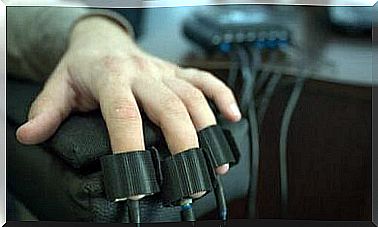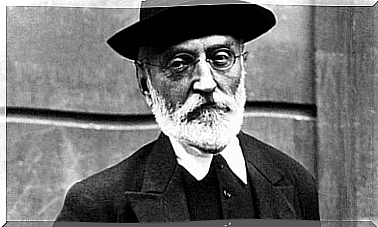Suffering By Avoiding Suffering

It may seem incredible, but over the last few decades there has been an increase in a social mandate that forces us to be happy above all else. Avoiding suffering has become the motto that many cling to, regardless of its implications.
So much so that many are now talking about the “dictatorship of happiness”. Analyst Ima Sanchís pointed out that “happiness has become an instrument of torture” . Paradoxically, depression has become a widespread epidemic. Somehow, avoiding suffering has become a major source of suffering.
Many people feel a strong aversion to what they call “negativity”. No one can talk about their ailments, mourn or show signs of pessimism. It’s like we were part of a big play where pain is forbidden. It is as if we had suddenly ceased to be human. To a greater extent, avoiding suffering is not living.
The trap of avoiding suffering
In reality, few people will consciously say that they want to experience pain. However, something else is happening on the unconscious level. People stumble a thousand times into the same rock and continue to go blindly into situations that cause suffering. But that’s a different story.
The point is, all that has been said so far does not mean that we should seek suffering. Rather, our goal is to draw attention to the trend of avoiding it. We do not choose the pain in our lives, it already comes with it. And trying to deny, avoid or ignore it does not make us happier. On the contrary, since it could be the start of more difficult pain to overcome.
The most disturbing aspect of this current desire is that it becomes a form of deception. When someone asks you “How are you?” And you are not feeling well, you have to lie. Your answer must be “Very good”. People who promote this “stupidity” say that you may want to convince yourself that you are fine, even if it is not true. In the same way, if you answer, “Bad, I’m in pain,” people will probably get away from you as if you were contagious.

False happiness
Psychoanalyst Dr. Luis Hornstein says many people come to his office with similar patterns of suffering. Some examples are excessive dependence on others, serious value misplacement, ups and downs in self-esteem, and difficulty establishing meaningful relationships. We are no longer in Freud’s time when people had exotic and unique ailments. Even suffering has become standardized in today’s world.
The desire to avoid suffering has also become the norm. This is why many people go and seek advice to stop suffering. They do not want to understand the cause behind their disorder and to work with it, but only to eliminate the pain. That is why, when they fail to accomplish this impossible task, they give up psychotherapy. Instead, they sink into blind love, an invasive obsession, or elusive cynicism.
We have forgotten that we all need suffering to grow. Emotional pain is what allows us to put impossible fantasies in their place and learn to deal with boundaries and losses. We learn to deal with them when we face suffering, not when we avoid it.

Learning to be happy
Happiness is something that goes beyond a temporary achievement or a moment of euphoria. There are also much more than positive phrases tailored for each occasion. We are happy when we learn to benefit from every experience we have, and when we learn to believe that we will be able to handle whatever it is we face.
We become a little happier when we accept that we are also vulnerable beings, exposed to uncertainty and limitations. Avoiding suffering is the opposite of happiness. To deny suffering is to deny ourselves. In the same way, it is also to deny the opportunity for growth that exists in every moment of pain in our lives to make us better people.









